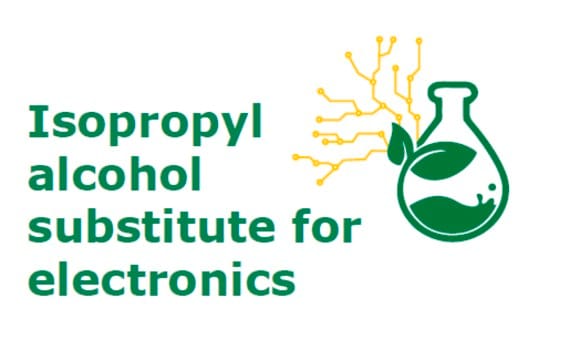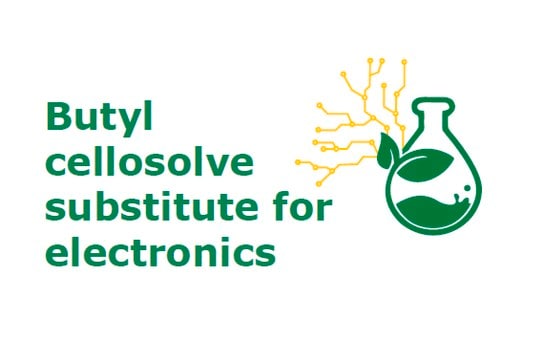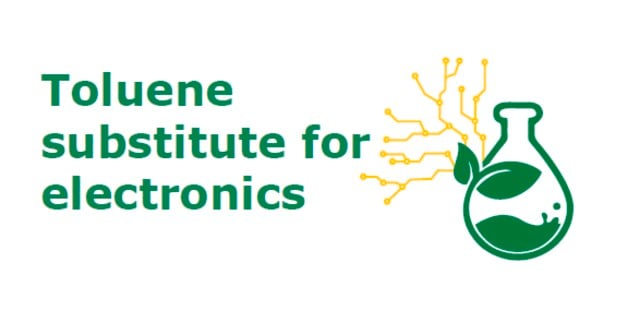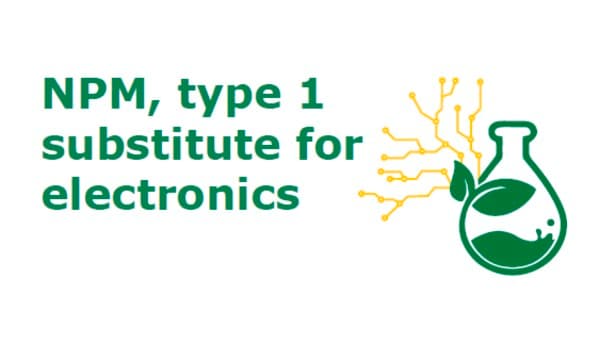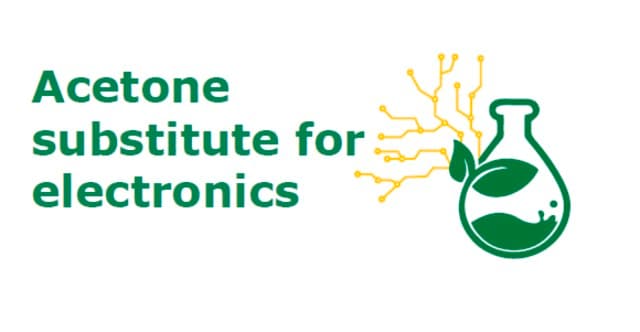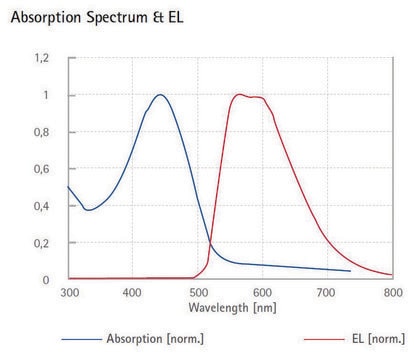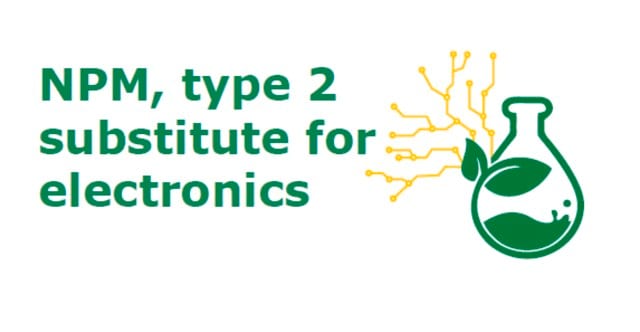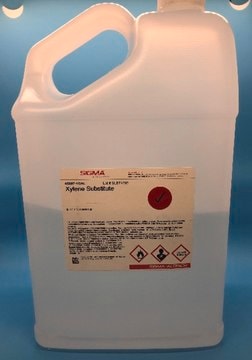929700
ElectroGreen®
Xylene substitute for electronics, bio-sourced
About This Item
Recommended Products
grade
for electronic purposes
Quality Level
vapor pressure
36 mmHg ( 20 °C)
description
RelativeEvaporation rate: 0.89
Hansen SolubilityParameters: SPd = 7.7; SPp = 3.1; SPh = 5.8
Specific Gravity (25°C): 0.8905
Assay
≥99% (GC)
form
liquid
greener alternative product characteristics
Safer Solvents and Auxiliaries
Use of Renewable Feedstocks
Learn more about the Principles of Green Chemistry.
sustainability
Greener Alternative Product
impurities
≤1 ppm As, Cr, Cd, Cu, Hg, Mn, Ni, Pb, Zn, trace (ICP, each)
0.2% water (Karl Fischer)
evapn. residue
≤ 0.05%
color
clear
viscosity
9.3 cP(20 °C)
bp
80-160 °C
suitability
suitable for acidity (<=0.09% as lactic acid)
greener alternative category
Looking for similar products? Visit Product Comparison Guide
General description
This solvent blend consists of n-Butylacetate 50-70%, Ethyl lactate 20-30%, ethanol 20-30%, ethyl acetate 1-5%.
Application
It is readily recycled via distillation for repeated reuse, with no Global Warming compounds or Hazardous Air Pollutants.
Storage and Stability
Legal Information
Signal Word
Danger
Hazard Statements
Precautionary Statements
Hazard Classifications
Eye Dam. 1 - Flam. Liq. 2 - STOT SE 3
Target Organs
Central nervous system, Respiratory system
Supplementary Hazards
Storage Class Code
3 - Flammable liquids
WGK
WGK 1
Flash Point(F)
61.9 °F
Flash Point(C)
16.6 °C
Certificates of Analysis (COA)
Search for Certificates of Analysis (COA) by entering the products Lot/Batch Number. Lot and Batch Numbers can be found on a product’s label following the words ‘Lot’ or ‘Batch’.
Already Own This Product?
Find documentation for the products that you have recently purchased in the Document Library.
Articles
Carbon-based Sustainable Organic Electronics (SOE) limit the use of critical elements and biodegrade at their end-of-life. This review offers insight on how structural and energy disorder in these materials influence device performance and includes evaluations of various transport models and their limitations.
Carbon-based Sustainable Organic Electronics (SOE) limit the use of critical elements and biodegrade at their end-of-life. This review offers insight on how structural and energy disorder in these materials influence device performance and includes evaluations of various transport models and their limitations.
Carbon-based Sustainable Organic Electronics (SOE) limit the use of critical elements and biodegrade at their end-of-life. This review offers insight on how structural and energy disorder in these materials influence device performance and includes evaluations of various transport models and their limitations.
Carbon-based Sustainable Organic Electronics (SOE) limit the use of critical elements and biodegrade at their end-of-life. This review offers insight on how structural and energy disorder in these materials influence device performance and includes evaluations of various transport models and their limitations.
Our team of scientists has experience in all areas of research including Life Science, Material Science, Chemical Synthesis, Chromatography, Analytical and many others.
Contact Technical Service